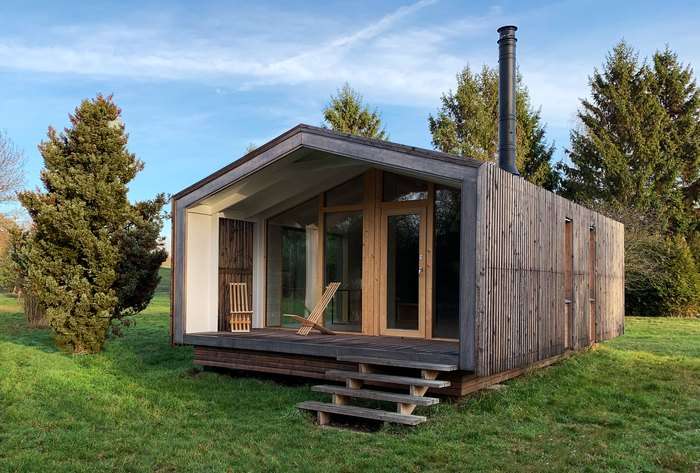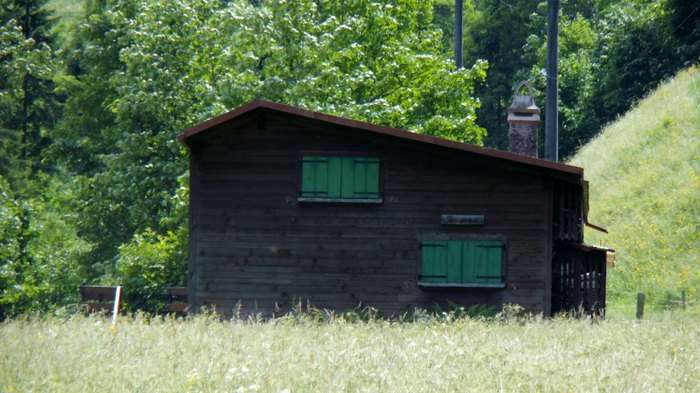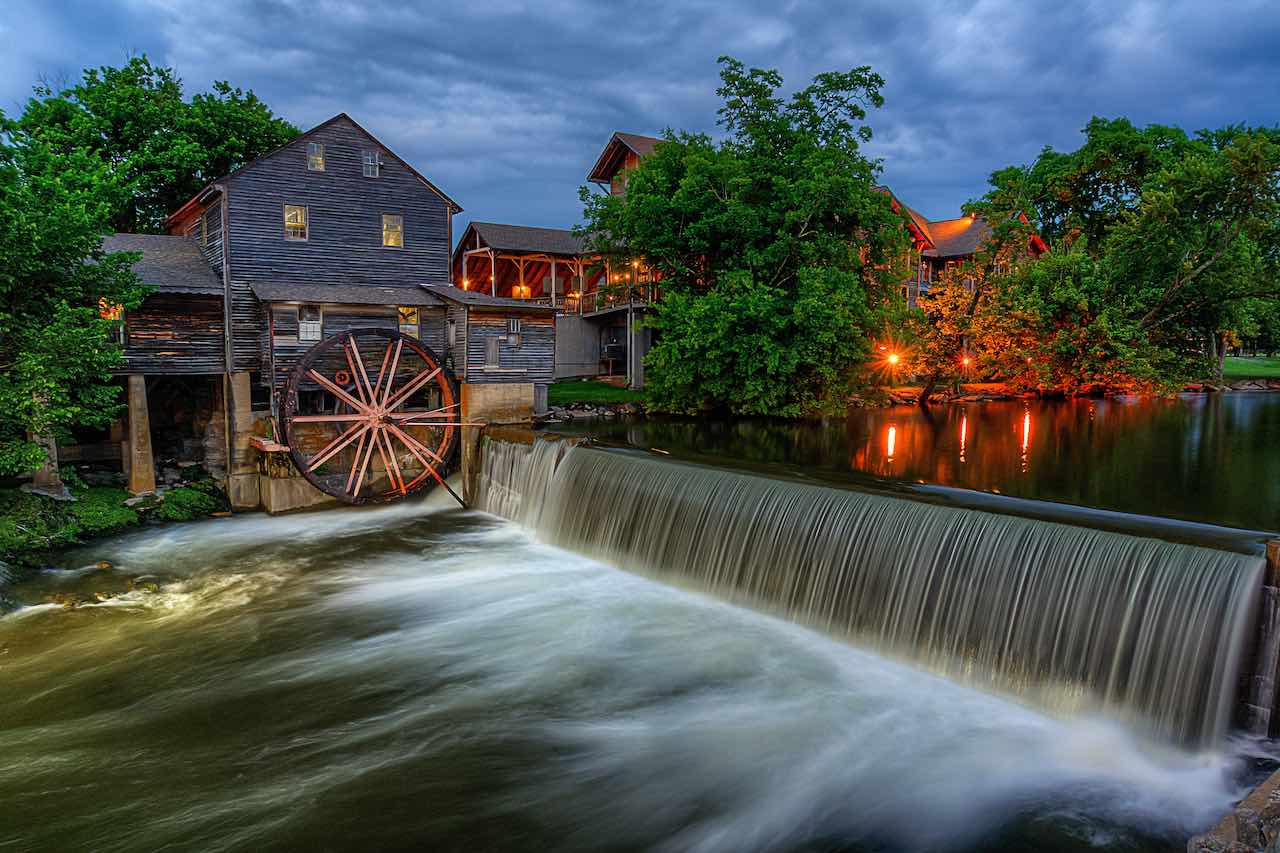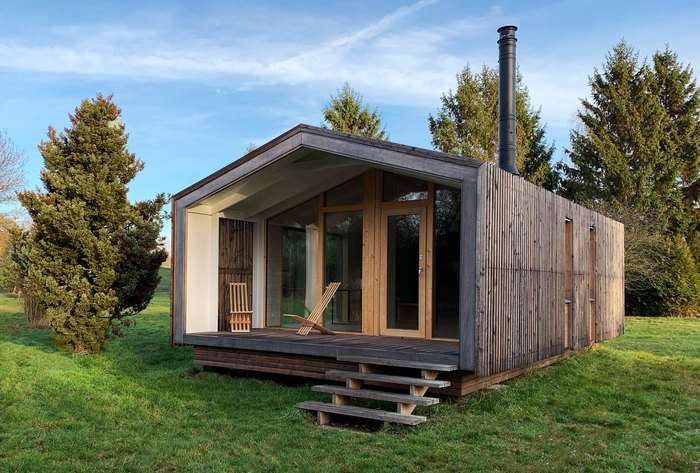If you’re looking to embrace a simpler and more self-sufficient lifestyle, Tennessee might just be the perfect state for you. Despite its high crime rate in certain areas, Tennessee offers a range of counties that are ideal for off-grid living. From Gibson County to Marion County, these counties provide everything you need to thrive off the grid. With a low cost of living, low cost of property, and no income tax, Tennessee is an affordable option for frugal living. Additionally, the state boasts a relatively mild climate, long growing period, and an abundance of fresh water sources. While areas like Nashville, Memphis, and Knoxville are best avoided, counties like Polk County and Wayne County are highly recommended for their suitable land, low population density, and access to natural resources. In these off-grid communities, you’ll find access to water sources, fertile land for agriculture, and renewable energy options like solar and wind power. It’s time to discover the best counties for off-grid living in Tennessee and start living life on your own terms.
Best Counties for Off-Grid Living in Tennessee
Gibson County
Gibson County is considered one of the best counties for off-grid living in Tennessee. Located in the western part of the state, Gibson County offers a rural and peaceful environment that is perfect for those seeking a self-sustainable lifestyle. The county has a relatively low population density, ensuring privacy and a close connection with nature. In addition, Gibson County has suitable land for off-grid living, with plenty of options for constructing your own home or setting up a sustainable farm.
Rutherford County
Rutherford County is another top choice for off-grid living in Tennessee. Situated in the middle of the state, Rutherford County offers a balance between a rural atmosphere and close proximity to urban amenities. The county has a thriving off-grid living community and a supportive network of like-minded individuals. With its low cost of living, Rutherford County provides an affordable option for those looking to escape the rat race and live a simpler, more sustainable life.
Franklin County
Franklin County, located in the southeastern part of Tennessee, is a popular destination for individuals and families seeking to live off-grid. The county offers picturesque landscapes, including stunning mountain views and ample opportunities for outdoor activities. Franklin County has a low population density, allowing for greater privacy and a peaceful atmosphere. The county also offers access to natural resources and fertile land for agriculture, making it an ideal location for those looking to become self-sufficient.
Lincoln County
Located in south-central Tennessee, Lincoln County is highly recommended for off-grid living. The county’s rural setting, combined with a low cost of living, makes it an attractive option for individuals and families looking to embrace sustainable living. Lincoln County boasts plenty of suitable land for off-grid housing and provides access to fresh water sources. With its mild climate and long growing period, the county also offers opportunities for self-sustenance through agriculture.
Perry County
Perry County is another excellent choice for off-grid living in Tennessee. Situated in the western part of the state, Perry County offers a peaceful and secluded environment, perfect for those seeking to escape the hustle and bustle of city life. The county has a low population density and ample suitable land for off-grid living. Perry County is also known for its abundance of fresh water sources, providing residents with a reliable and sustainable water supply.
Wayne County
Wayne County, located in southern Tennessee, is a prime location for off-grid living. The county offers a serene and natural environment, allowing residents to fully immerse themselves in a self-sustainable lifestyle. Wayne County has a low cost of living, making it an affordable option for individuals looking to reduce their expenses and live a more frugal life. The county also provides access to natural resources and fertile land for agriculture, ensuring residents can meet their own basic needs.
Marion County
Marion County, situated in the southeastern part of Tennessee, is a desirable destination for off-grid living. The county offers breathtaking natural beauty, including scenic mountains and picturesque rivers. Marion County has a low population density, providing residents with peace and privacy. The county offers suitable land for off-grid living, allowing individuals and families to build their own sustainable homes. In addition, the county has access to fresh water sources, making it an ideal location for self-sufficient living.

Reasons why Tennessee is a good state for off-grid living
Low cost of living
Tennessee is known for its affordable cost of living, making it an attractive state for those looking to live off the grid. The state offers lower housing prices compared to many other parts of the country, allowing individuals to purchase land and build their off-grid homes at a more affordable rate. In addition to housing costs, Tennessee also has lower transportation costs, utility expenses, and overall living expenses compared to other states.
Low cost of property
In addition to the low cost of living, Tennessee also offers a low cost of property, making it easier for individuals to acquire land for their off-grid living needs. Whether you are looking to purchase a large tract of land for agriculture or a small parcel for a self-sustainable home, Tennessee provides a variety of affordable options. This allows individuals to invest in their off-grid lifestyle without breaking the bank.
No income tax
One of the major advantages of living off-grid in Tennessee is the absence of state income tax. The state is one of the few in the country that does not impose a personal income tax on its residents. This provides significant financial savings for individuals and families, allowing them to allocate more resources towards their off-grid living goals. The absence of income tax is especially beneficial for off-grid living, as it allows individuals to have more disposable income to invest in sustainable technologies and infrastructure.
Relatively mild climate
Tennessee enjoys a relatively mild climate compared to other parts of the country. The state experiences all four seasons, with mild winters and warm summers. This climate is advantageous for off-grid living as it allows for easier cultivation of crops and minimizes the need for excessive heating or cooling systems. The mild climate also makes it easier to live comfortably without relying heavily on outside resources.
Long growing period
Tennessee’s climate provides a long growing period, allowing off-grid residents to grow a wide variety of crops and produce. With a growing season that extends from early spring to late fall, off-grid residents in Tennessee have ample time to cultivate their own food and maximize their self-sufficiency. This extended growing period allows for a diverse range of fruits, vegetables, and herbs to be grown, enhancing the nutritional value and variety of the off-grid diet.
Abundance of fresh water sources
Water is an essential resource for off-grid living, and Tennessee offers numerous freshwater sources such as rivers, lakes, and underground aquifers. These water sources provide off-grid residents with a reliable and sustainable supply of water for drinking, cooking, cleaning, and irrigation. Access to fresh water is crucial for self-sufficient living, and Tennessee’s abundance of water sources ensures that off-grid residents can meet their basic needs without relying on outside infrastructure.

Counties to Avoid for Off-Grid Living in Tennessee
Nashville
Nashville is the capital and largest city of Tennessee, and while it offers many amenities and a vibrant urban lifestyle, it is not an ideal location for off-grid living. The city has a high population density and expensive real estate prices, making it challenging for individuals and families to find affordable land for off-grid living. Additionally, Nashville’s urban environment and limited access to natural resources may hinder self-sustainable living efforts.
Memphis
Memphis, located in southwestern Tennessee, is another city to avoid for off-grid living. Similar to Nashville, Memphis has a high population density and high real estate prices, making it difficult to find suitable land for off-grid living. The city also faces social and economic challenges that may impact the quality of life for off-grid residents. While Memphis offers cultural attractions and a unique history, it is not an ideal location for those seeking a self-sustainable lifestyle.
Knoxville
Knoxville, situated in eastern Tennessee, is another city that may not be suitable for off-grid living. The city has a relatively high population density and real estate prices that may not be conducive to off-grid living. While Knoxville offers a range of amenities and recreational opportunities, the urban environment and lack of accessible land may not align with the goals of off-grid living. Individuals looking to live a self-sustainable lifestyle should consider other counties in Tennessee that offer more suitable conditions.

Recommended Counties for Off-Grid Living in Tennessee
Polk County
Polk County, located in southeastern Tennessee, is a recommended destination for off-grid living. The county offers a tranquil and picturesque environment, with its scenic mountains, forests, and rivers. In Polk County, individuals can find suitable land for off-grid housing, allowing them to live in harmony with nature. The county has a low population density, ensuring privacy and a sense of solitude. Polk County also provides off-grid residents with access to natural resources and opportunities for outdoor activities.
Monroe County
Monroe County, situated in eastern Tennessee, is another recommended county for off-grid living. The county offers stunning landscapes, including the Great Smoky Mountains National Park and numerous rivers and lakes. Monroe County has a low population density and plenty of suitable land for off-grid housing. The county’s natural beauty and resources make it an ideal destination for those seeking a sustainable and self-sufficient lifestyle.
Wayne County
Wayne County, as previously mentioned, is recommended for off-grid living due to its peaceful and natural environment. The county offers suitable land for off-grid housing, ensuring individuals can build their sustainable homes. Wayne County has a low cost of living, making it an attractive option for those looking to save money and live a frugal lifestyle. The county also provides access to natural resources, further supporting self-sufficiency efforts.
Lawrence County
Lawrence County, located in south-central Tennessee, is an excellent choice for off-grid living. The county boasts a rural atmosphere and a low population density, allowing individuals to enjoy privacy and a connection with nature. Lawrence County offers suitable land for off-grid housing and provides access to natural resources such as water sources and fertile land for agriculture. The county also has a low cost of living, making it an appealing option for those looking to embrace a self-sustainable lifestyle.
Grundy County
Grundy County, situated in southeastern Tennessee, is highly recommended for off-grid living. The county offers a serene and secluded environment, perfect for individuals seeking to disconnect from the chaos of modern life. Grundy County has a low population density, providing residents with privacy and a peaceful atmosphere. The county also offers affordable land for off-grid housing and access to natural resources, including fresh water sources. With its natural beauty and resources, Grundy County is an ideal location for off-grid living.
Van Buren County
Van Buren County, located in southeastern Tennessee, is an underrated county for off-grid living. The county offers beautiful landscapes and a tranquil environment, providing residents with peace and solitude. Van Buren County has suitable land for off-grid housing, allowing individuals to build their sustainable homes. The county’s low population density and low cost of living make it an attractive option for those looking to live a more self-sufficient and frugal life.

Advantages of Each Recommended County
Suitable land for off-grid living
Each of the recommended counties in Tennessee provides suitable land for off-grid living. This allows individuals to construct their own sustainable homes, grow their own food, and live in harmony with nature. The availability of suitable land ensures that off-grid residents have the space and resources to fully embrace a self-sustainable lifestyle.
Low population density
The recommended counties for off-grid living in Tennessee have a low population density. This offers several advantages, including privacy, peace, and quiet. Living in an area with a low population density allows individuals to connect with nature, minimize noise pollution, and enjoy a sense of solitude. The low population density also ensures that off-grid residents have minimal distractions and can focus on their self-sufficiency goals.
Affordable cost of living
The recommended counties in Tennessee also offer an affordable cost of living. This includes lower housing prices, utility costs, and overall living expenses. Living off-grid often involves reducing reliance on outside resources and finding more affordable alternatives. The affordable cost of living in these counties allows individuals to allocate more resources towards their off-grid living endeavors and achieve a more frugal lifestyle.
Access to natural resources
One of the key advantages of the recommended counties for off-grid living in Tennessee is their access to natural resources. These counties offer fresh water sources, fertile land for agriculture, and abundant natural beauty. Access to natural resources is crucial for self-sustainable living, as it allows individuals to meet their basic needs without relying on outside infrastructure. Whether it’s water for drinking, irrigation for crops, or natural landscapes for recreational activities, the recommended counties have it all.

Off-Grid Living Communities in Tennessee
Access to water sources
Off-grid living communities in Tennessee often provide access to water sources, ensuring residents have a reliable supply of clean water. These communities may be located near rivers, lakes, or underground aquifers, allowing individuals to tap into these resources for their water needs. Access to water sources is crucial for self-sufficient living, as it eliminates the need to rely on municipal water systems or other external sources for water.
Fertile land for agriculture
Many off-grid living communities in Tennessee are situated in areas with fertile land for agriculture. These communities often prioritize sustainable farming practices and encourage residents to grow their own food. The availability of fertile land allows off-grid residents to cultivate a variety of crops and become less reliant on outside sources for their food supply. This enhances the self-sufficiency and sustainability of these communities.
Renewable energy options like solar and wind power
Off-grid living communities in Tennessee often provide renewable energy options such as solar and wind power. These communities may have solar panels or wind turbines installed to generate electricity for residents. By harnessing the power of renewable energy, off-grid residents can reduce their reliance on fossil fuels and minimize their impact on the environment. The availability of renewable energy options in these communities further supports their sustainability efforts.
In conclusion, Tennessee offers numerous advantages for off-grid living. With its low cost of living, low cost of property, no income tax, relatively mild climate, long growing period, and abundance of fresh water sources, the state provides an ideal environment for those looking to embrace a self-sustainable lifestyle. While there are certain areas to avoid for off-grid living, such as Nashville, Memphis, and Knoxville, there are several recommended counties, including Gibson County, Rutherford County, Franklin County, Lincoln County, Perry County, Wayne County, and Marion County. These counties offer suitable land, low population density, affordable cost of living, and access to natural resources, making them perfect for off-grid living. Tennessee’s off-grid living communities also provide access to water sources, fertile land for agriculture, and renewable energy options, further enhancing the self-sufficiency and sustainability of residents. So, if you’re looking to escape the confines of the modern world and embrace a simpler, more sustainable lifestyle, Tennessee may just be the perfect destination for you.




